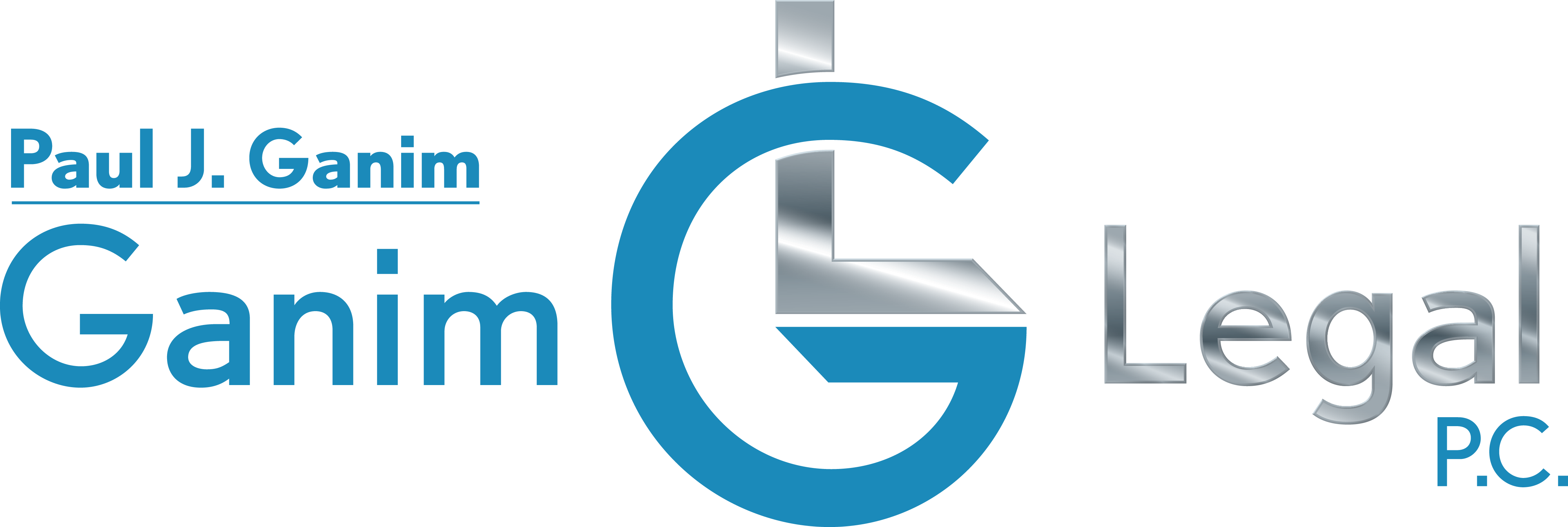Exploring the aftermath of a traumatic brain injury (TBI) is challenging, especially when it comes to securing a fair settlement. Understanding the intricacies of settlements for TBIs is crucial before accepting any offers, particularly in the realm of personal injury law where settlement amounts can greatly vary.
Ganim Legal recognizes the profound impact a TBI can have on your life. That’s why we’re dedicated to advocating for brain injury victims, aiming to secure the settlements they rightfully deserve.
Understanding Traumatic Brain Injury Settlements
A traumatic brain injury (TBI) settlement is a financial agreement reached between the injured individual and either their insurance company or the fault party responsible for the injury. This settlement provides compensation for the various costs and losses incurred due to the injury, which include, but are not limited to:
- medical expenses
- rehabilitation costs
- lost wages
- pain and suffering
- and other related expenses
The purpose of a TBI settlement is to offer the necessary financial support for the injured person’s recovery and to address the long-term effects of the brain injury, while also compensating for any physical, emotional, and financial challenges experienced as a result of the injury.
Understanding Traumatic Brain Injury Settlements in Connecticut, whether severe or mild brain injuries, requires comprehension of complex legalities. Your path to securing a fair settlement hinges on recognizing the layers of both medical and legal intricacies.
Exploring brain injury compensation demands a solid understanding of how settlements are calculated. Critical factors influencing this calculation include:
- The current and anticipated future medical treatment and expenses
- The lost wages and potential future earnings
- The emotional toll caused by the injury
Every TBI case is unique, making it imperative for you and your legal team to assess the long-term impacts of your injury thoroughly. This comprehensive evaluation ensures that all facets of the injury’s consequences are accounted for in the settlement.
Equipped with the right knowledge and support, exploring the path to a just settlement is within reach. Remember, your fight for fair compensation is about financial recovery, ensuring stability, and caring for your future.
Factors Influencing Brain Injury Compensation
Whether you’re dealing with a Traumatic Brain Injury or mild traumatic brain injury settlements, the principles determining your compensation remain similar.
Severity of the Injury
The extent of your brain injury plays a pivotal role. More severe injuries often result in higher settlements due to the long-term medical care required. The nature and extent of the injury will be assessed through medical evaluations and expert testimonies to establish the amount of compensation.
Impact on Quality of Life
The way the injury has affected your daily life is a significant consideration. If the injury has impaired your ability to work, pursue hobbies, or perform routine activities, this loss of quality of life will be factored into the compensation. This aspect covers both the physical limitations and the psychological impact of the injury.
Economic Losses
Documenting all financial losses related to the injury is essential. This includes not only immediate medical expenses but also ongoing costs, lost wages, and the potential loss of future earning capacity. Gathering detailed records and projections of these economic losses is crucial for substantiating your claim for compensation.
Non-Economic Losses
These losses encompass the emotional and psychological toll of the injury, such as pain and suffering, emotional distress, and loss of consortium or companionship. Quantifying these non-economic losses can be challenging, but they are an integral part of brain injury compensation. Skilled legal representation is necessary to articulate and negotiate these aspects of your claim effectively.
Navigating the Settlement Process
Navigating the settlement process for a traumatic brain injury (TBI) settlement involves several critical steps to ensure you receive fair compensation. The first step is to compile comprehensive medical evidence that substantiates your claim.
Compiling Comprehensive Medical Evidence:
- Collect detailed medical records documenting your injury and subsequent treatment.
- Secure expert testimonies from medical professionals regarding the injury’s severity.
- Develop a life care plan to forecast future medical needs and associated costs, which is crucial for highlighting the long-term impact.
After compiling your evidence, the negotiation phase kicks in, during which your traumatic brain injury lawyer’s experience is invaluable.
Entering the Negotiation Phase:
- Your attorney will discuss with insurance companies and defense attorneys to advocate for a comprehensive settlement covering:
- Economic losses, like medical expenses and lost wages.
- Non-economic damages, including pain and suffering.
- A skilled negotiator is essential since insurance companies typically aim to minimize payouts. Your experienced attorney will strive to ensure the settlement reflects your true losses and how they affect your quality of life.
Achieving a fair settlement for a traumatic brain injury is often a lengthy process, demanding patience and persistence.
Emphasizing Patience and Persistence:
- Understand that securing a fair settlement requires detailed knowledge of your immediate and long-term needs.
- Trust in the strategy and negotiation skills of your legal team throughout this time-consuming process.
With the right support and guidance, you can successfully navigate the complexities of the settlement process and secure the compensation you rightfully deserve.
Mild Traumatic Brain Injury Settlements
Mild Traumatic Brain Injury Settlements can be complicated and challenging. Unlike more severe TBIs, mTBIs can be difficult to diagnose and prove, given the often subtle symptoms that may not appear immediately. Therefore, it’s crucial to gather comprehensive medical records and expert testimonies to establish the severity of your injury and its impact on your daily life.
It’s important to note that traumatic Brain Injury Settlements can vary significantly in Connecticut, depending on the unique circumstances of each case. To secure fair compensation, you must establish a clear connection between the incident that caused your injury and the long-term effects you’re experiencing. This connection is critical in demonstrating the impact of your injury on your life and your ability to function.
To achieve a successful settlement, you must have the right support and evidence. This evidence should demonstrate the full extent of your economic and non-economic losses. It’s also important to reach out to experienced and knowledgeable professionals when dealing with Mild Traumatic Brain Injury Settlements. With their guidance and support, you can navigate the complex legal system and secure a settlement that accurately reflects the full extent of your losses.
Maximizing Your Brain Injury Compensation
When exploring Traumatic Brain Injury Settlements in Connecticut, understanding the key components that contribute to maximizing your compensation is crucial. Whether you’re dealing with catastrophic injuries or mild brain injuries, the principles for ensuring fair compensation remain similar. The strategy for ensuring fair compensation includes the following:
- Accurate and Comprehensive Medical Documentation: Essential for confirming the extent of your injury and outlining necessary medical treatment and costs.
- Experienced Legal Representation: Your personal injury lawyer plays a critical role in negotiations, advocating on your behalf against insurance companies’ attempts to downplay the injury’s impact.
Next, consider the long-term effects of your injury. Traumatic Brain Injuries can lead to ongoing medical expenses, lost wages, and diminished quality of life. Quantifying these losses is essential for claiming brain injury compensation that truly reflects the full spectrum of your suffering and financial losses.
Finally, don’t overlook the importance of testimonials. Specialists in neurology, psychology, and vocational therapy can provide critical insights into your condition and support your personal injury claim with authoritative statements on your prognosis and the necessity of long-term care.
What to Consider Before Accepting a Settlement
Traumatic brain injury cases are known to be both intricate and unpredictable. Navigating personal injury lawsuits for brain injuries requires careful consideration. Therefore, before accepting any settlements related to such cases, it is crucial to gain a comprehensive understanding of the injury and its implications. A thorough understanding of the injury is especially significant as both mild traumatic brain injury (mTBI) and traumatic brain injury (TBI) cases can have long-lasting effects.
Before making a decision, ensure the settlement:
- Adequately covers all medical treatment costs, both current and future, reflecting the evolving nature of TBI effects.
- Accounts for economic losses, non-economic losses, and potentially punitive damages, including lost wages and the impact on life quality. Punitive damages are considered in cases where the fault party’s conduct was especially harmful.
- Reflects the average settlement amounts for catastrophic injuries or mild brain injuries, as appropriate, ensuring you receive compensation that commensurates with the severity of your situation.
- Is reviewed by personal injury lawyers who can offer professional advice, ensuring the compensation is in your best interest over the long term.
Personal injury lawsuits can be complex, especially when they involve catastrophic injuries or mild brain injuries. It’s essential to have a comprehensive assessment of your case to ensure the settlement not only covers immediate and future medical needs but also acknowledges the full extent of your suffering and loss.
Remember, once you accept a settlement, you cannot reverse your decision. As a result, it’s critical to make an educated, informed, and thoughtful choice that supports your long-term well-being.
Contact Ganim Legal for Traumatic Brain Injury Settlements
Understanding the critical aspects of brain injury lawsuit settlements is paramount in ensuring you are well-informed and advised before accepting any settlement offer. It is essential to seek professional legal assistance to navigate the settlement process’s complexities and maximize your compensation.
Contact us today for the support you need to make informed decisions and secure the best possible outcome for your case.





